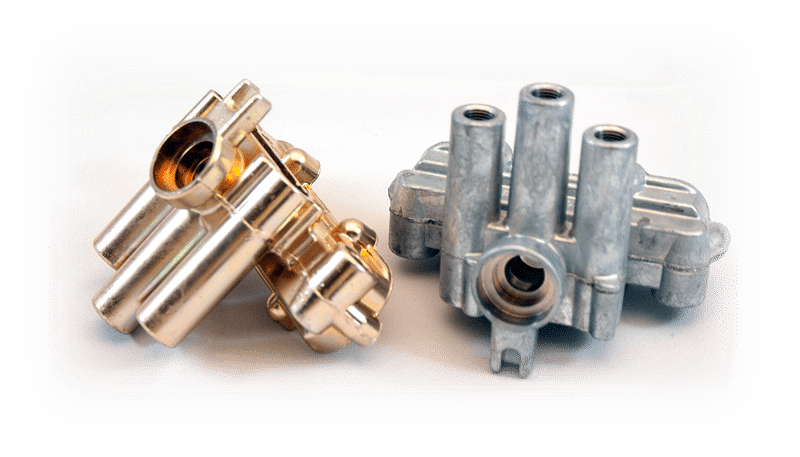Contract manufacturing is a type of outsourcing that companies use, which involves hiring a manufacturer to create products. A contract manufacturer may take part in various stages of production, including design, manufacturing, and shipping, depending on the needs of their client. In this blog post, we will explore what contract manufacturing is, how it works, what are its benefits and types, and how to choose the right contract manufacturer for your business.

What is Contract Manufacturing
Contract manufacturing is when one company enters into an agreement with another to produce components or products over a specific timeframe. This is outsourcing on a manufacturing level, and like outsourcing employees, it lets companies compete in areas that were previously unreachable. It’s a business agreement where one company pays another to provide the necessary components to assemble finished goods, or even manufacture the product in its entirety. Contact manufacturers are third-party providers, and most only work as subcontractors or sell their products to other businesses. Typically, a company in need of a contract manufacturer will reach out to one with a design and get a quote for the process, labour, tooling, and materials. If the price of doing business is less than the costs of manufacturing, it’s good to go. For this relationship to work, there needs to be transparency and collaboration between the two parties.
Types of Contract Manufacturing
There are many different types of contract administration agreements between companies that enter into contract manufacturing. However, most fall under these four categories:
Private Label Manufacturing
This type of contract manufacturing is when the contractor delivers a finished product, as specified by the company that hired them. That product is delivered to an inventory warehouse or directly to the store. Sometimes, these items are the product of several components. In that case, the components will be assembled prior to shipment. This is an ideal relationship for businesses that have a clear product vision but want to outsource the entire production.
Individual Component Manufacturing
Here, contract manufacturing is only responsible for making one component that will become part of a larger, more complicated final product. They are only responsible for the manufacturing of this component, one of the many components that were designed during the product development process. Other contracted companies must assemble that component into the finished product. This is obviously a solution for companies that have some in-house manufacturing capabilities but can’t produce all the components necessary for their final product.
Labor or Service Subcontracting
In this, the contract manufacturer is only involved with one part of the larger process and acts more as a subcontractor in relation to a general contractor. They provide labour or services such as installation, maintenance, or repair. This type of contract manufacturing is common in industries such as construction, engineering, or IT.
Full Turnkey Manufacturing
This is the most comprehensive type of contract manufacturing, where the contractor handles everything from design to delivery. They take care of sourcing materials, engineering, prototyping, testing, quality control, packaging, and shipping. This type of contract manufacturing is suitable for businesses that want to focus on their core competencies and leave the rest to the experts.

Benefits of Contract Manufacturing
There are many benefits of using contract manufacturing for your business, such as:
Cost savings
By outsourcing production to a contract manufacturer, you can save on capital expenses such as machinery, equipment, facilities, and labour. You can also reduce operational costs such as maintenance, utilities, and inventory management. You only pay for what you need and when you need it.
Quality improvement
Contract manufacturers have the expertise, experience, and certification to produce high-quality products that meet your specifications and standards. They also have access to advanced technology and equipment that can improve efficiency and accuracy. You can benefit from their quality assurance processes and testing methods that ensure your products are reliable and consistent.
Scalability
Contract manufacturers can easily adjust their production capacity according to your demand fluctuations. You can increase or decrease your order volume without worrying about overproduction or underproduction. You can also leverage their global network and distribution channels to reach new markets and customers.
Risk reduction
Contract manufacturers can help you mitigate the risks associated with manufacturing, such as supply chain disruptions, regulatory compliance, environmental issues, and intellectual property protection. They can also handle the logistics and customer service aspects of your business, which can reduce your liability and reputation risks.
Non-Disclosure Agreement (NDA) in Contract Manufacturing
A non-disclosure agreement (NDA) is a legal document that binds the parties involved in a contract manufacturing relationship to keep confidential any information that is shared or exchanged during the course of the business. An NDA is essential to protect your trade secrets, proprietary data, product designs and business strategies from being disclosed or used by unauthorized parties. An NDA should cover the following aspects:
- The scope of the confidential information- This defines what information is considered confidential and what is not. It should be clear and specific to avoid any ambiguity or misunderstanding.
- The obligations of the parties- This outline what the parties can and cannot do with the confidential information. It should include clauses such as non-use, non-disclosure, non-competition, and non-solicitation.
- The duration of the agreement- This specifies how long the NDA is valid and when it expires. It should also state what happens to the confidential information after the termination of the agreement.
- The exceptions and exclusions- This lists the situations or circumstances where the parties are allowed to disclose or use the confidential information without violating the NDA. These may include prior knowledge, public domain, independent development, consent, or legal obligation.
- The remedies and penalties- This describes the consequences of breaching the NDA and the actions that can be taken by the aggrieved party. These may include injunctions, damages, arbitration, or litigation.
How to Choose the Right Contract Manufacturer
Choosing the right contract manufacturer for your business is a critical decision that can affect your product quality, customer satisfaction and profitability. Here are some steps you can follow to select the best contract manufacturer for your needs:
- Define your requirements- Before you start looking for a contract manufacturer, you should have a clear idea of what you want them to do for you. You should define your product specifications, quality standards, production volume, delivery time, budget, and expectations.
- Research potential candidates- You can use various sources to find potential contract manufacturers, such as online directories, trade shows, industry associations, referrals, or recommendations. You should look for contract manufacturers that have experience and expertise in your industry and product type. You should also check their credentials, certifications, reputation, and reviews.
- Request quotes and proposals- You should contact several contract manufacturers and request quotes and proposals for your project. You should compare their prices, services, capabilities and terms and conditions. You should also ask for references and samples of their previous work.
- Evaluate their performance- You should conduct a thorough evaluation of each contract manufacturer’s performance based on various criteria, such as quality, reliability, flexibility, communication, and customer service. You should also visit their facilities and inspect their equipment, processes, and personnel. You should also conduct a trial run or a pilot project to test their capabilities and compatibility.
- Negotiate the contract- Once you have selected the best contract manufacturer for your project, you should negotiate the contract with them. You should make sure that the contract covers all the important aspects of your business relationship, such as scope of work, payment terms, delivery schedule, quality control, warranty, liability, and dispute resolution.

Conclusion
Contract manufacturing is a popular and effective way of outsourcing production to a third-party provider. It can help you save costs, improve quality, increase scalability, and reduce risks. However, it also requires careful planning, research, and evaluation to find the right contract manufacturer for your business. By following the steps outlined in this blog post, you can make an informed decision that will benefit your business in the long run.





